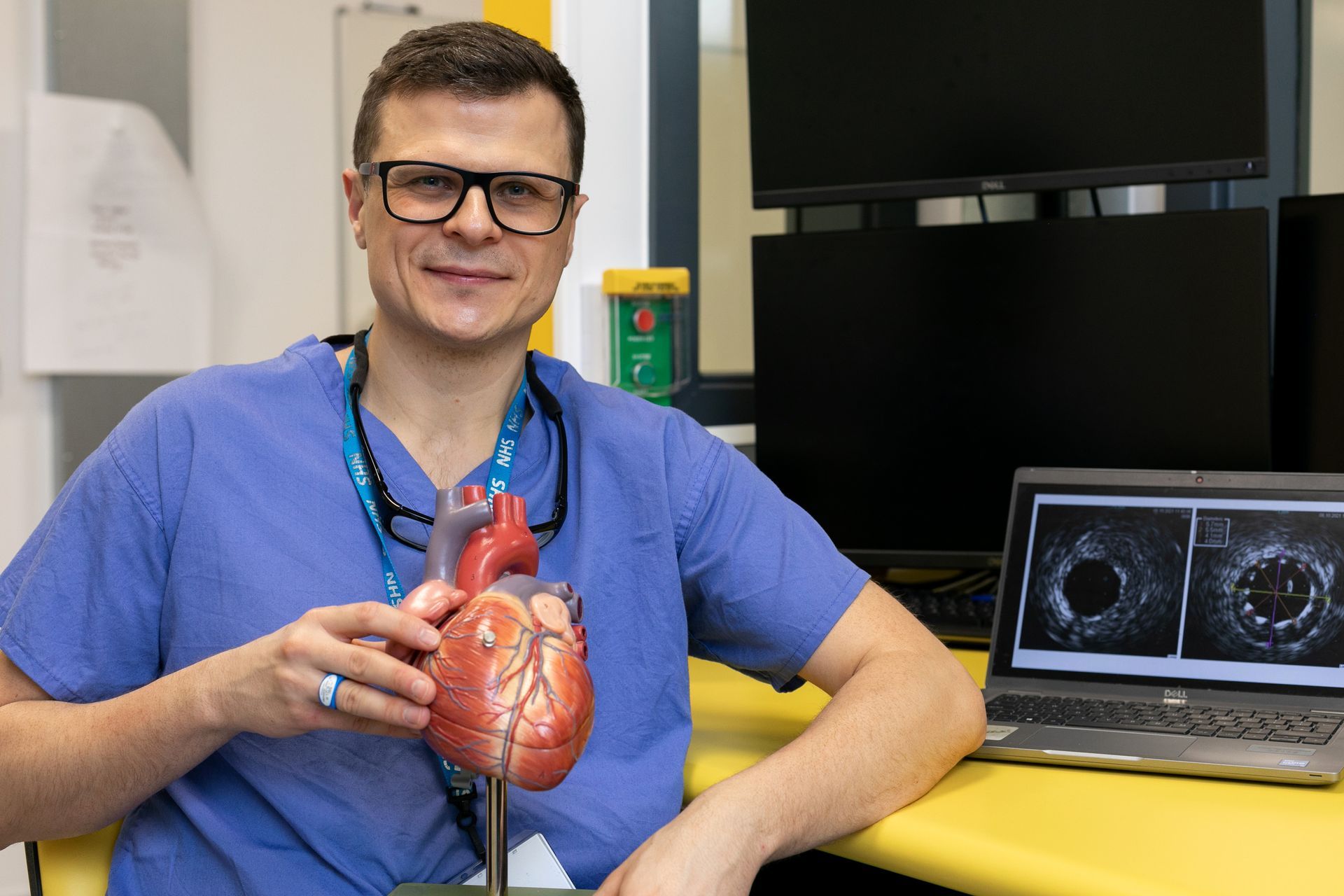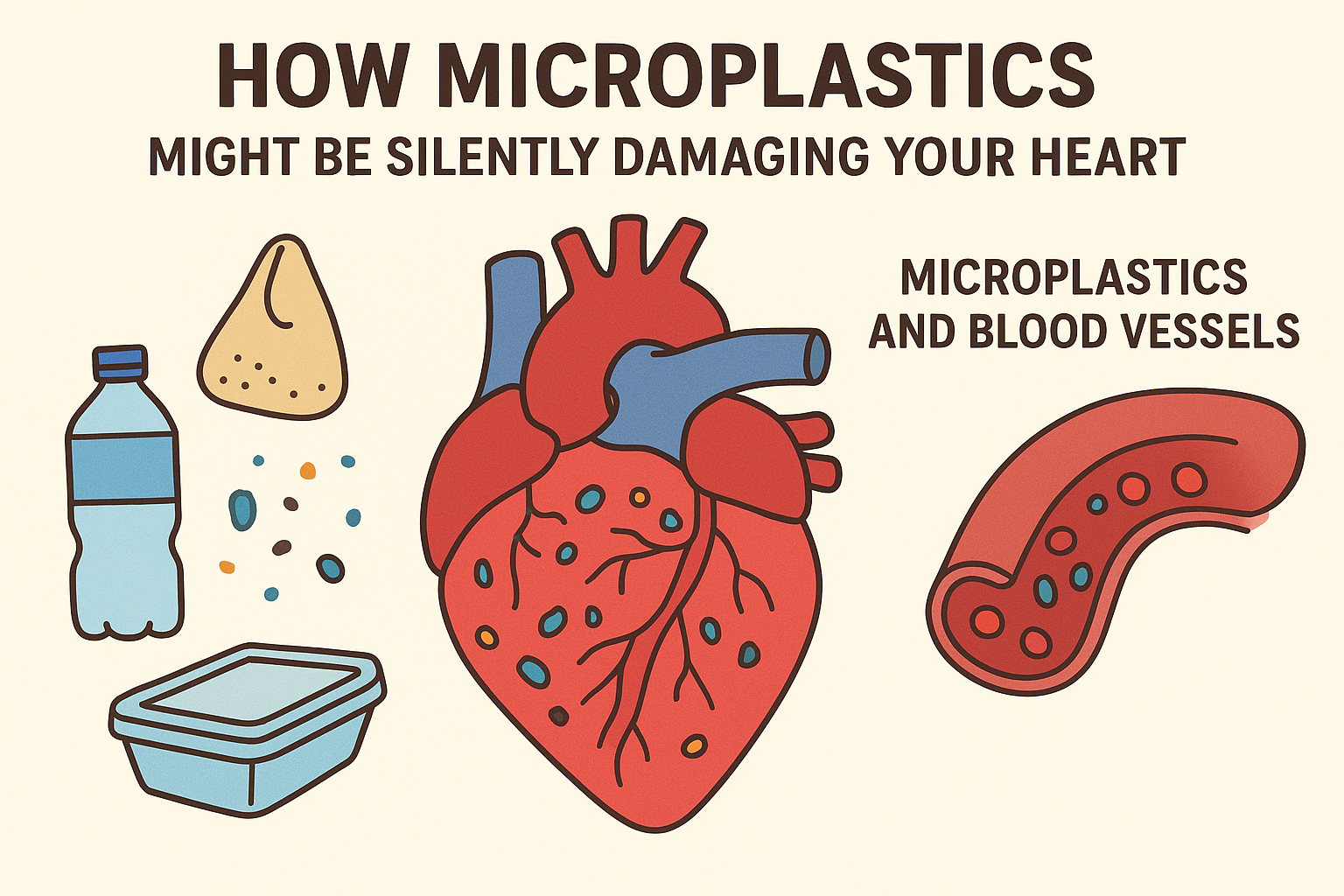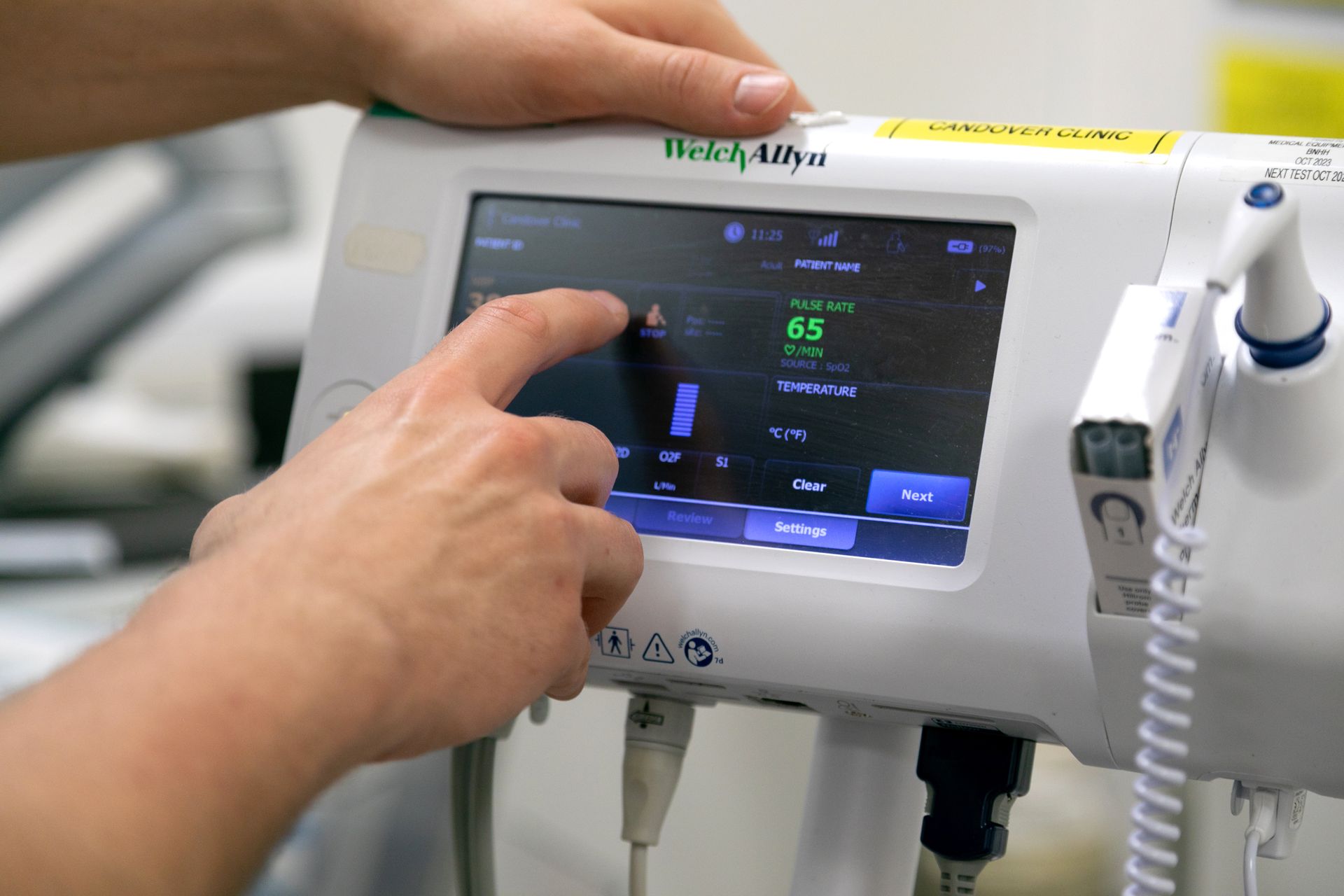Cardiology Tips for the Elderly: Staying Active and Healthy

Understanding Age-Related Cardiovascular Changes
Aging affects every organ in the body, and the heart is no exception. Age-related cardiovascular changes include stiffening of the arteries, reduced elasticity of blood vessels, and a decline in the efficiency of the heart’s pumping ability. According to a study published in 2003 these changes can lead to higher blood pressure, atherosclerosis (furring up of the arteries) and a risk of stroke.
(https://www.ahajournals.org/doi/pdf/10.1161/01.CIR.0000048892.83521.58)
By adopting heart-healthy habits and staying vigilant, seniors can mitigate many of these risks. However, recognizing the importance of preventive measures is crucial to maintaining
heart health for seniors.
Common Heart Problems in the Elderly
1. Hypertension (High Blood Pressure): Like many health conditions, hypertension (HTN) becomes more common with age, rising in prevalence from 27% among individuals under 60 to 74% among those over 80.
(https://pmc.ncbi.nlm.nih.gov/articles/PMC7021657/pdf/CLC-43-99.pdf)
2. Atrial Fibrillation (AF): Commonly referred as an irregular heartbeat, is more common in seniors and increases the risk of stroke. The prevalence of atrial fibrillation (AF) rises significantly with age, making it the most common heart rhythm disorder in individuals over 65. Among those over 80, approximately 10% are affected. Additionally, 70% of people with AF fall within the 65 to 85 age range.
(https://pmc.ncbi.nlm.nih.gov/articles/PMC4630199/pdf/vhrm-11-555.pdf)
3. Coronary Artery Disease (CAD): Plaque buildup in the arteries reduces blood flow to the heart, potentially causing chest pain or heart attacks. Age is the most significant nonmodifiable risk factor for CAD and various cardiovascular conditions in older adults. According to the American Heart Association's 2019 update, 31% of men and 25.4% of women aged 80 or older are affected by CAD.
(https://pmc.ncbi.nlm.nih.gov/articles/PMC9803549/pdf/10-1055-s-0042-
1751234.pdf)
4. Heart Failure: This occurs when the heart is unable to pump blood efficiently, leading to fatigue, swelling, and shortness of breath. The occurrence of heart failure is closely tied to age, with an estimated incidence of 1% at age 65 that roughly doubles with each passing decade. By age 80, both men and women face a 20% lifetime risk of developing heart failure, comparable to the risk at age 40, despite a
significantly shorter remaining life expectancy. Heart failure is a major contributor to mortality, illness, and hospitalizations among older adults.
(https://pmc.ncbi.nlm.nih.gov/articles/PMC5503696/pdf/nihms806909.pdf)
5. Valve Disorders: Aging can lead to conditions such as aortic stenosis, where the heart valves become narrowed or stiffened. The prevalence of heart valve disease rises sharply with age, with degenerative conditions such as severe aortic stenosis and mitral or tricuspid regurgitation affecting at least 10% of individuals aged 75 and older.
(https://pmc.ncbi.nlm.nih.gov/articles/PMC6391621/pdf/WJC-11-71.pdf)
Understanding these conditions helps seniors and their caregivers seek timely medical intervention and adopt appropriate lifestyle changes.
Dr Bart`s and co-authors research article entitled: ‘Is cardiac resynchronisation therapy feasible, safe and beneficial in the very elderly?’
The objective of this study was to determine if a complex heart device treatment called cardiac resynchronization therapy (CRT) is practical and safe for people aged 80 and older, and to see how it affects their symptoms. CRT can be described in broad terms as an advanced pacemaker, which is used in patients with weakened hearts/heart failure.
Patients who received CRT at two hospitals in the UK (Portsmouth and Bournemouth) were studied. They were divided into two groups based on age: those under 80 and those 80 or older. Information such as health conditions, complications, and results was compared
between the groups.
A total of 439 patients were included, with 26% being 80 or older. Older patients were more likely to receive a pacemaker version of CRT rather than a defibrillator version. Both age groups had similar rates of switching from a regular pacemaker to CRT (16% for under 80, 22% for 80 and older). Chronic health issues like diabetes (25%), atrial fibrillation (23%), and high blood pressure (45%) were common in both groups. However, more older patients had serious kidney problems (44% vs. 22% in younger patients). The overall rate of complications was similar for both groups (16% for under 80, 17% for 80 and older). Both age groups reported improvement in symptoms after CRT. However, the one-year death rate was about four times higher for patients 80 and older compared to younger patients (13.9% vs. 3.7%).
CRT seems to be safe for people 80 and older, even though they often have other serious health conditions like kidney disease. It also helps with symptoms in a meaningful way. Efforts are needed to better identify elderly patients with heart failure who could benefit from CRT.
(https://pmc.ncbi.nlm.nih.gov/articles/PMC4605944/)
Conclusion
Heart health for seniors is a complex entity requiring a combination of physical activity, proper nutrition, stress management, and regular medical care. By understanding age-related cardiovascular changes and adopting preventive measures, seniors can significantly reduce the risk of heart problems and enjoy a high quality of life. With the right lifestyle choices and medical support, a healthy heart is within reach at any age.











